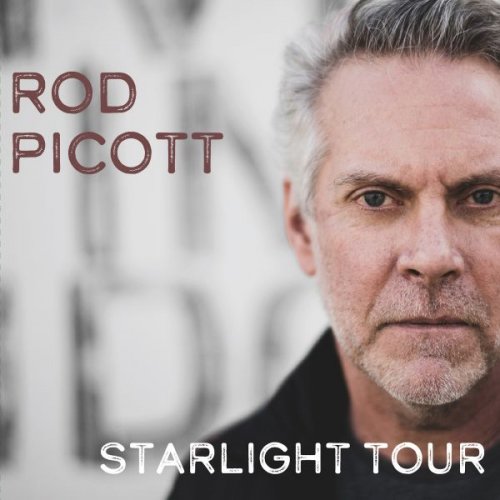The thrum of insects on an August night. A saw blade biting kiln-dried hemlock. The lonesome highway whine of long-haul trucks. A crude swallow of cheap whiskey that tears at your throat. Tears of loss and the easy laughter of old friends. This is the sound of Rod Picott’s world.
How the heck am I supposed to compete with that, Adam Dawson?
If the above description doesn’t convince you to purchase and listen to the latest—and possibly last—from Rod Picott, nothing I add in the next three or four hundred words is gonna change your mind. Scroll on.
But if the above piques your interest, I’ll try not to ruin it for you.
Rod Picott has been around for a few decades now, releasing albums for the last twenty-three years, while also writing books and continually touring. He has written songs with Slaid Cleaves (notably “Broke Down”) but, for the most part, remaining out of the Americana spotlight. His last few albums have been stellar, and I’ve favourably reviewed them here, here, and here.
Picott writes, “I’m not reinventing the wheel. These songs have been sung before. But what I bring is detail only someone who has lived that blue-collar life can bring…”
True, but Picott does more than that as he sings in a wonderful voice that manages to reach ears in an intimate and personal manner. His songs remind us a bit of James McMurtry’s, but Picott is more concise—lyrically and musically—than McMurtry, holding and enriching our interest as we accompany him on a song-fueled, literary journey.
Picott takes us to see the world through the eyes of a journeyman boxer (“A Puncher’s Chance,” and co-written by Brian Kappelman) and a labourer (“Digging Ditches”) while sharing scornful insight of those who take advantage of the unwary (“Television Preacher.”)
Picott becomes the farmer hoping to get one final harvest out of his deteriorating “Combine” (a second Kappelman co-write) before inhabiting the Vietnam-era soldier returning to his homeland (“Pelican Bay,”) perhaps the album’s signature song, only to be forced to change clothes in the airport crapper to avoid spit and protest; like in many of Picott’s songs, he shares that some life events are simply steps to endure as we move toward more positive experiences.
Without exaggeration, “Homecoming Queen” (an Amy Speace co-write) favourably resembles a Springsteen song, equal parts contemporary reality and faded remembrances. Similarly, the brutal “Starlight Tour” (co-written with Nick Nace) examines the thoughts of someone who has seen the worst that humans can do, while holding onto select positive memories of a father figure—“She said he was my daddy, but I ain’t so sure; might have been just another bad night’s cure…”
Starlight Tour, like his previous albums, is dark in places but Picott doesn’t allow himself to revel in the grim for the sake of mood. There is always a hope—however faded by days gone by—brightening the edges of his tales.
Juan Solorzano’s guitars including pedal steel (as well as piano, glockenspiel, and trumpet) prove shading to these songs, while producer Neilson Hubbard (drums, percussion) and Lex Price (bass, mandolin) augment Picott’s acoustic guitar.
The album closes with these lyrics from “Time to Let Go Of Your Dreams,” and few albums have a more formidable capstone: So go and make a new wish Let it come soft as a kiss. Hold it close to your chest and there it will rest, It’s time to find a new dream. Again, I can’t say it better.
Rod Picott. Starlight Tour.Find it.




